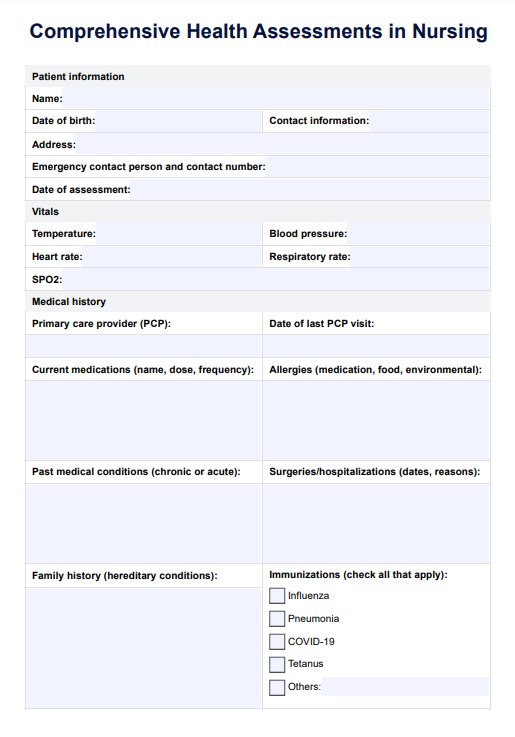A focused assessment targets a specific health issue or body system, while a CHA examines the entire patient. For example, a focused assessment might look only at cardiovascular health, while a CHA would evaluate all body systems and aspects of health.

Comprehensive Health Assessments in Nursing
Enhance patient care with Comprehensive Health Assessments in Nursing, ensuring thorough evaluations for better diagnosis, treatment, and improved health outcomes.
Use Template
Comprehensive Health Assessments in Nursing Template
Commonly asked questions
In most healthcare settings, registered nurses (RNs) conduct health assessments. However, nurse practitioners, physicians, and other healthcare providers may also perform them.
The length of this assessment varies depending on the patient’s health status and complexity. It can take anywhere from 30 minutes to an hour or more, depending on the depth of the assessment needed.
EHR and practice management software
Get started for free
*No credit card required
Free
$0/usd
Unlimited clients
Telehealth
1GB of storage
Client portal text
Automated billing and online payments











